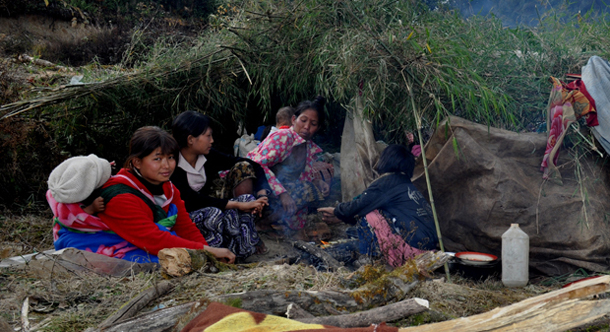WASHINGTON—Amid growing concerns over a worsening in the fighting between Burma’s government and Kachin ethnic rebels, overseas Kachin groups have launched public appeals to the US government and Burmese opposition leader Aung San Suu Kyi to intervene and pressure the Burmese army into ending its offensive.
In open letter on Wednesday the US-based Kachin Alliance urged President Barack Obama to take steps to force the Burmese government to stop its assault, which now threatens to overrun the headquarters of the Kachin Independence Army and has displaced an estimated 100,000 local Kachin villagers.
“[E]thnic and civil society groups and peace activists have made appeals to the Thein Sein government to put an end to this civil war […] The international community has also called for restraint, but the ground and aerial bombardments continue unabated,” the group said.
“[But] it appears the Burmese government, aided and abetted by the Chinese, is seeking a military solution rather than a political one,” it said.
The group asked the US to condemn the use of airpower by the Burmese military and demand that it ends the fighting and open negotiations with the rebels. The safety of displaced Kachin villagers should be guaranteed, the Kachin Alliance said.
It also called on the US to reconsider its diplomatic, economic and planned military ties with Naypyidaw. Kachin organizations and other US ethnic communities from Burma will demonstrate at the State Department and the White house on Jan. 12 to highlight their demands.
There was no immediate reaction from the White House. The State Department said on Wednesday that is was urging the warring parties to lay down arms and open talks.
“We are encouraging both the government and the rebels to end the violence, to commit to a process of compromise, discussion, as has been done in other parts of Burma. That is still what we are working on,” said State Department spokesperson Victoria Nuland.
US-Burma ties have only recently thawed after years of heavy western sanctions against Burma’s military-led regime, and Obama visited Rangoon in November amid international praise for the reform agenda of President Thein Sein’s quasi-civilian government.
Concerns remain about the plans of Burma’s military and whether Thein Sein can assert power over the army, which has fought battles with the country’s ethnic groups for decades.
On Thursday, 23 overseas Kachin organizations sent an open letter to Aung San Suu Kyi, in which they repeated an earlier appeal to the NLD leader to pressure the government into stopping its Kachin State offensive.
The Nobel laureate has been largely silent on the war in Kachin State, which has greatly intensified since mid December. At an Independence Day speech on Jan 4, Suu Kyi was conspicuously silent on the conflict.
“[We] request that you clarify your position or at least elaborate upon your understanding of recent events so that we can develop constructive dialogue on these matters with you,” the Kachin groups said.
“All Kachin people are waiting for your detailed comments on these matters,” the letter said.
The groups said that Suu Kyi’s lack of response so far was a major concern for the Kachin and other ethnic groups in the country, who had hoped that recent reforms and new political leadership in Burma would bring positive change for them after decades of conflict.

















